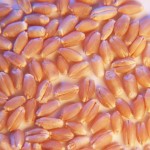
Features

Don’t jump the gun on pest control

Slow resistance with layered herbicides
Gowan representatives say layering isn't just about dressing for fickle weather anymore

Don’t misdiagnose soil compaction
Erosion or true compaction? A correct diagnosis is key to proper management

Are seed treatments worth the cost?
Ask the Experts: Seed treatments come at a price, but some say they add enough benefits to pay that bill

Canada thistle still on ‘least wanted’ list
Early and thorough control is essential to keep Canada thistle under control

Barley leaf diseases stealing yield
Spot blotch, net blotch will join fusarium head blight as problems in Sask. and Alta.

Farmers just waiting on weather
The farmers surveyed for this Farmer Panel are ready to hit the field for spring seeding

Should I grow the latest new crop?
Angela Lovell asks the experts whether or not getting in on a hot new trend is a good idea

Weed control in a dry summer
Dry summer weather could mean a whole new slate of weed control challenges

New class coming for 29 wheats
More than two dozen older Hard Red Spring wheat varieties are being reclassified


